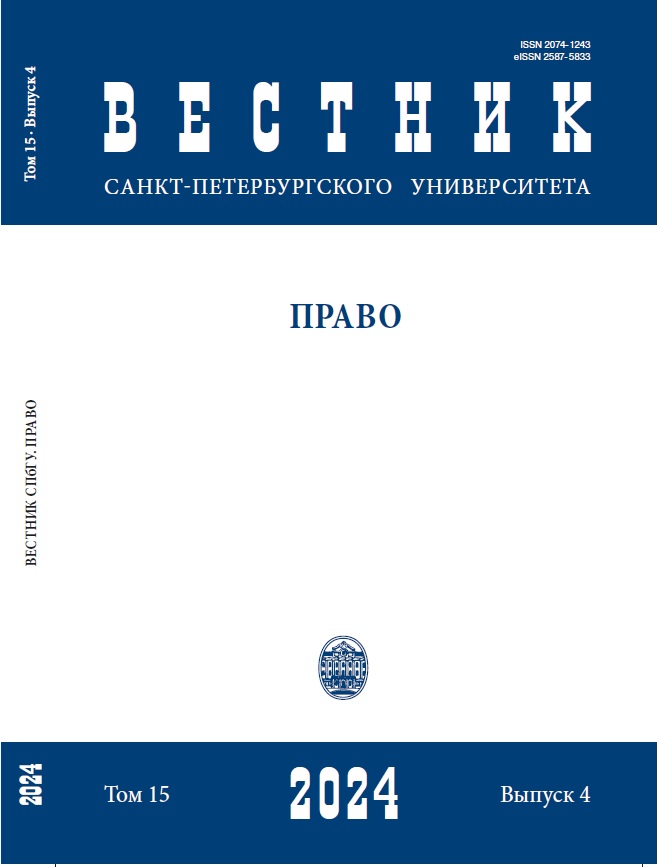A systematic approach to a unified ecosystem of criminal proceedings based on a digital platform
DOI:
https://doi.org/10.21638/spbu14.2024.407Abstract
The authors substantiate that in the conditions of modern digitalization of all spheres of activity, there is an urgent need to introduce a single digital system into the activities of law enforcement agencies, which would represent a certain structural subsystem of digital platforms of several departments, such as the court, police, prosecutor’s office, Investigating committee, Federal Security Service (FSB), in order to ensure a logically sound and economically feasible approach to their interaction and operational achievement of the tasks of criminal proceedings. The work uses an integrated approach with the allocation of certain key issues: starting with the analysis of the possibilities of digital processing of the received crime report to the features of the use of digital evidence, robotics and artificial intelligence, features of the analysis and exchange of information processed by neural networks. The authors substantiate the need to use the term “ecosystem of criminal proceedings”. Special attention in the article is devoted to the research of the block-modular organization of this platform; multi-channel receipt of information in a single form through interaction interfaces and the possibility of using software systems to identify false denunciations based on the analysis of voice modulation, micro-vibrations and facial expressions, as well as the content of messages. The proposals for automating individual issues of checking reports of a crime by equipping law enforcement agencies with unmanned aerial vehicles; for the receipt of information into the ecosystem through video recording of the results of verbal and mixed remote investigative actions are investigated. The potential possibility of robotization of individual stages of the investigation or individual actions with subsequent integration of the results of the activity in question into the digital ecosystem is considered. The prospects of legislative novelties in the following areas are substantiated: establishing the possibility of using electronic document management in the Ministry of Internal Affairs of the Russian Federation as the main one, including conducting an electronic (digital) criminal case; consolidation of procedures for the use of electronic evidence in proving; establishment of a legal regime for artificial intelligence systems and robotic systems.
Keywords:
digital platform, ecosystem of criminal proceedings, remote investigative actions, criminal proceedings, digitalization, artificial intelligence, robotics
Downloads
References
Downloads
Published
How to Cite
Issue
Section
License
Articles of "Vestnik of Saint Petersburg University. Law" are open access distributed under the terms of the License Agreement with Saint Petersburg State University, which permits to the authors unrestricted distribution and self-archiving free of charge.






